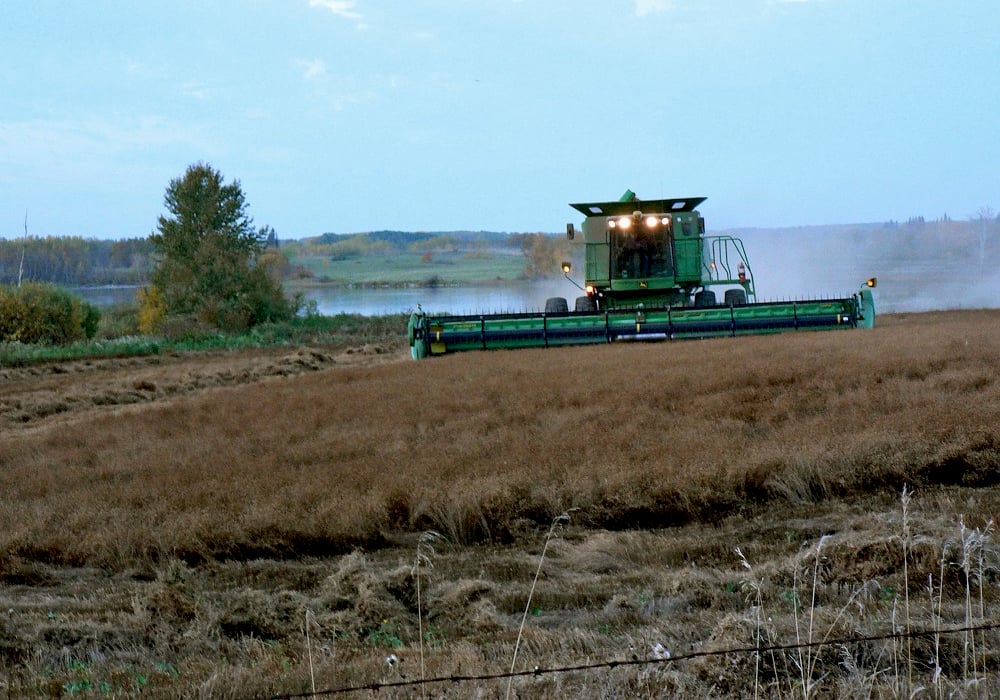Six months after leaving his front line positions at the Canadian Food Inspection Agency as chief veterinary officer and chief food inspection agency, Brian Evans is set to retire.
In an internal CFIA memo, president George Da Pont says the former small town Ontario vet who became the face of the agency as it dealt with the 2003 BSE industry crisis will retire effective March 29 with some holidays before then.
“His professionalism, dedication and passion will be greatly missed,” Da Pont said in an email to CFIA staff.
Read Also

Most of Manitoba harvest wraps up for 2025
Manitoba Agriculture issued its final crop report of 2025, showing the overall provincewide harvest at 97 per cent complete as of Oct. 20. Nearly all major crops have finished combining, with 37 per cent of Manitoba’s sunflowers finished, plus 71 per cent of grain corn and small amounts of soybeans and potatoes left to do.
Evans spent 31 years at Agriculture Canada and at the CFIA since 1997 when it was created.
From 2007-10, he was agency executive vice-president before being named Canada’s first chief food safety officer.
Since last September when he was appointed a “special adviser” to the president as he left his earlier roles, Evans also has remained Canada’s delegate to the Paris-based World Organization for Animal Health (OIE), continuing a 13-year run.
Da Pont said a new OIE delegate soon will be named, as well as a replacement for Evans on the agriculture minister’s expert advisory committee and the Consumer’s Association Roundtable.
After BSE was discovered in an Alberta cow in 2003 and borders for Canadian cattle and beef slammed shut around the world, Evans was the main Canadian official explaining Canadian actions to control the problem and travelling the world to assure markets that Canadian beef was safe.
He repeated the performance, logging hundreds of thousands of flying miles, as subsequent cases were detected.
Evans was a regular speaker at food conferences who occasionally exhibited a keen sense of humour.
Last year during a speech at a Conference Board of Canada food conference in Toronto, he assured the audience that as the Canadian government regularly insists trade rules in importing countries be “science-based,” that is happening.
However, unfortunately for Canadian exporters, it often is political science, social science and other forms of the soft sciences, he joked.














